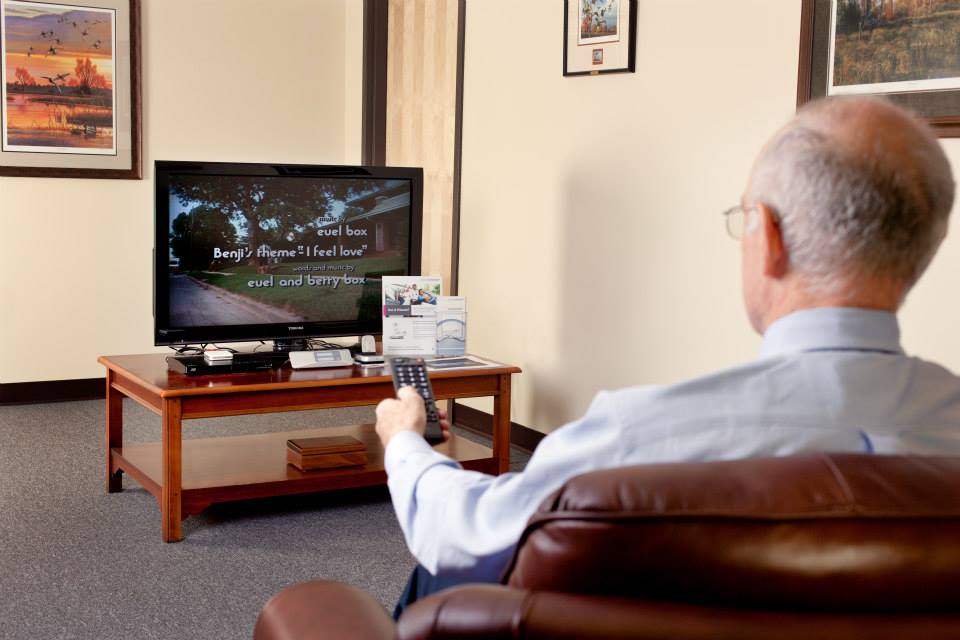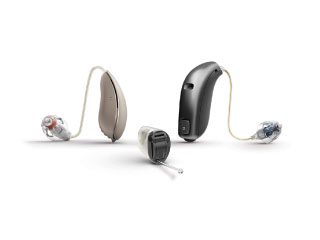Better Hearing Blog

Use It or Lose It!
Some hearing-impaired individuals choose to postpone getting a hearing instrument in the belief that there is little reason to do so as long as they are still able to hear sound. However, postponing treatment only makes it more difficult to treat hearing loss. Research indicates that, if the brain’s auditory system is not stimulated, it will cease to recognize sound. This phenomenon helps explain why people who wait too long to get properly fitted with a hearing instrument do not get as much benefit as those seeking earlier treatment. Fortunately, thanks to a process known as “neuroplasticity,” the brain eventually relearns to hear once the brain is stimulated with sound it receives from a hearing instrument.
Not being able to hear well isn’t just frustrating, it also can be a safety concern when it interferes with the ability to hear warning signals, such as police sirens, weather alarms or railroad crossing and train whistles. To schedule a hearing exam, please call BETTER HEARING CENTER . New Hampshire’s premier hearing care provider, we are the only hearing center that has served the Concord area for over 50 years.
P.S. Research suggests that wearing a hearing instrument helps those with hearing impairments increase their memory, improve their mood, and avoid dementia.

Twice as Nice!
If a hearing specialist recommends wearing hearing instruments in both ears, it is generally better to do so, even if the hearing loss in both ears is not equal. Why? Just as it is better to view the world through both eyes, the brain processes sound from both ears when providing an enhanced hearing experience. When the brain receives information predominantly from one ear, hearing ability is compromised. However, those wearing bilateral hearing instruments benefit from better sound localization (the ability to tell where sounds are coming from), better sound quality (mono versus stereo), better listening balance (precluding the need to turn to the “good” ear to hear), and improved ability to hear soft sounds (children and nature sounds).
By wearing hearing instruments in both ears, sound is able to reach and stimulate each ear’s auditory nerve, keeping the nerve actively engaged. Studies have shown that if auditory nerves aren’t stimulated by sound, they can slow down and make hearing impairment worse.
At Better Hearing Center, we offer a range of hearing aid packages and the most advanced hearing testing to best serve you and your ears. New Hampshire’s premier hearing care provider.
P.S. Research shows that those who wear bilateral hearing instruments report more satisfaction with their experience.

The Scream Response
Screaming is a universal sound that is designed to evoke a response. New research not only identifies what kind of sound can be defined as a “scream,” but it also pinpoints how the brain responds to it. While most people would characterize a scream as being loud and high-pitched, it is the “roughness” of the sound (how fast the sound changes in loudness) that is its defining characteristic. While speech patterns only have slight differences in loudness, screams can modulate very quickly. Researchers found that it is this “acoustic roughness” that activates the region of the brain (amygdala) that processes the fear response. The rougher the sound is, the more terrifying the brain interprets it as being.
Better Hearing Center offers customers a full range of diagnostic and hearing-loss prevention services, hearing instruments, and assistive devices. We continue the tradition of better hearing through education, technology, and customer service. To schedule a hearing assessment, please give us a call. Our goal is to provide you with everything you need to know to make the right decisions for your hearing health. We are New Hampshire’s premier hearing care provider.
P.S. The research mentioned above suggests that alarm sounds can be made more effective by adding roughness that will accelerate the brain’s response.

Secondhand Smoke Threatens Teens Hearing
Many teens are already at high risk for permanent hearing loss due to exposure to high-volume music coming from their mp3 players and concert venues. Now, there is also research suggesting that those exposed to secondhand smoke as children have a higher risk of suffering from low- and high-frequency hearing loss during their teens. This finding comes as troubling news to the estimated 60 percent of children in this country who are exposed to some kind of secondhand smoke. It may be even more concerning that, when researchers studied the health data of 1,533 children between the ages of 12 and 19, 80 percent of the adolescents with hearing loss were unaware that their hearing was comprised. Testing is recommended.
Teen that are exposed to passive smoke should be more closely monitored for hearing impairment. They also should be educated about risk factors of hearing loss, such as noise pollution and second-hand smoke. BETTER HEARING CENTER offers customers a full range of diagnostic and hearing-loss prevention services, hearing instruments, and assistive devices. To schedule a hearing assessment, please give us a call. We are New Hampshire’s premier care provider.
P.S. Children and teens who suffer from hearing loss early in life are likely to have problems with functioning and development.

